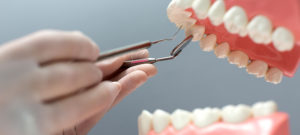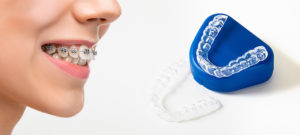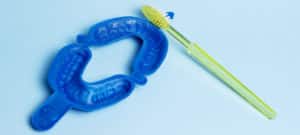How to Care for Your Dental Health During Pregnancy
Pregnancy is a challenging time for a woman’s body as it goes through major changes. Some common physical symptoms like nausea, fatigue, and weight gain are accompanied by some more hidden side effects like mental challenges.
When you become pregnant, an increase in hormone estrogen leads to gingivitis (red and bleeding gums) as well as an increase in plaque which can lead to an accelerated loss of teeth if left untreated. If combined with an unhealthy diet rich in sugary snacks or soda, these conditions can deteriorate even faster. As a result, managing your dental hygiene during pregnancy becomes even more important than ever before.
What to Expect When You’re Pregnant
When you’re pregnant, you’ll experience some common but very uncomfortable symptoms. While these side effects are not harmful per se, they can put a lot of stress on your body and even lead to some long-term complications. Let’s have a look at some of the most common ones –
Swollen and Sore Joints – The growing foetus inside you will put a lot of pressure on your joints. At some point during the pregnancy, you’ll experience a tingling sensation in your joints. This is natural and is caused by the growing fetus putting pressure on the surrounding tissues.
Varicose Veins – As the blood flows to your baby and back to your heart, it may get temporarily trapped in your veins. The veins most commonly affected are the ones in your legs (i.e. varicose veins). Varicose veins are large, twisted veins that are often blue or purple in color.
Swollen Feet and Ankles – The growing uterus will press against your blood vessels and the nearby tissues, which results in swelling in the ankles, feet, hands, and fingers. As the pregnancy progresses, this swelling may progress upward towards the knees.
Shortness of Breath – The growing uterus puts pressure on your diaphragm. As a result, you may feel short of breath at times. This is commonly seen in the first trimester as well as in the last trimester.
Maintaining Good Oral Health During Pregnancy
- Maintain proper oral hygiene routine to combat gingivitis
- Brush teeth twice a day, floss, and use interdental brushes
- Gentle on gums, soft bristled brush recommended
- Don’t brush too hard or too frequently
This is because you are more susceptible to dental issues during this time. You can choose to change your dental hygiene routine slightly during this period. Instead of using mouthwash, you can use a fluoride-free toothpaste, as mouthwash is not recommended for pregnant women.
You can also switch to whitening toothpaste or a desensitizing toothpaste if you are experiencing tooth sensitivity during pregnancy. As a pregnant woman, you should be extra careful about what you put in your mouth. Tobacco, alcohol, and a lot of carbonated soft drinks are harmful for dental health.These can cause additional damage during pregnancy.
Tips to Help You Care for Your Teeth During Pregnancy
Eat Right – A healthy and balanced diet is important during pregnancy. You can eat healthy foods like fruits, vegetables, whole grains, nuts, and beans. You should not eat too much junk food as they are high in sugar and low in nutrients.
Brush your teeth twice a day – Brush your teeth twice a day, first thing in the morning and before bed. This will prevent bacteria from accumulating on your teeth and gums, preventing tooth decay and gum disease.
Avoid Alcohol, Tobacco, and sugary drinks – Alcohol, tobacco, and sugary drinks are harmful to dental health. They can damage teeth, causing stains, tooth and gum sensitivity, gum disease, and cavities.
On Going to the Dentist During Pregnancy
It’s important to see the dentist throughout pregnancy in order to maintain dental health. Even if your oral health is fine and you don’t feel any dental issues, regular dental check-ups and cleanings are important. During pregnancy, your gums are more susceptible to illness, so it’s important to get regular dental examinations and cleanings. You can monitor your oral health and receive guidance on oral hygiene from your dentist.
During your initial exam, your teeth will be checked for cavities, gum disease, and other dental issues. In addition, the dentist will take an X-ray of your teeth to see if you have any cavities or broken teeth. The dentist will also discuss prenatal vitamins with you, as they are rich in folic acid. The majority of dental problems can be handled with a few dental procedures like filling a cavity or applying a sealant.
Conclusion
The increased estrogen levels during pregnancy lead to gingivitis, a form of periodontal disease. This is a very common condition that you should be aware of as a pregnant woman. It is important to maintain a healthy oral hygiene routine, especially during pregnancy.
You can eat the right foods, brush twice a day, and visit the dentist regularly to keep your mouth healthy. This will also ensure that you have healthy teeth for the rest of your life.
The convenience of a dentist appointment at your home is just one click away! Risio provides everything you need to maintain oral health with their online appointments, including safety and comfort.
To book your appointment call +91 9144544454 or contact us







